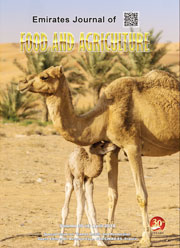Effect of temperature on the rheological behavior of sugary cassava
DOI:
https://doi.org/10.9755/ejfa.2020.v32.i2.2069Abstract
The rheological behavior of the juice extracted from sugary cassava roots, a type of cassava that stored the largest amount of sugars and the starch as it was, at various temperatures (9-65ºC) and in concentrations of 5ºBrix, 10.5ºBrix, and 18.5ºBrix. The experiments were performed on a Brookfield viscometer in a shear rate range of 0.01-237.6 s-1. The rheological models of Newton, Bingham, and Ostwald-De-Waele were fitted to the experimental results. The Newton model describes well the rheological behavior of the three samples evaluated. The effect of temperature on viscosity was evaluated using an Arrhenius equation; the viscosity value is influenced by the same temperature. The activation energy values for the concentrations of 5ºBrix, 10.5ºBrix and 18.5ºBrix correspond to 3.14 kcal mol-1, 3.53 kcal mol-1 and 3.71 kcal mol-1. This type of cassava can be used in the production of ethanol, fermented beverages and syrups. It is also an important alternative for food production, as the cultivation of cassava can be classified as less aggressive to the environment, in comparison with sugarcane.










 .
. 